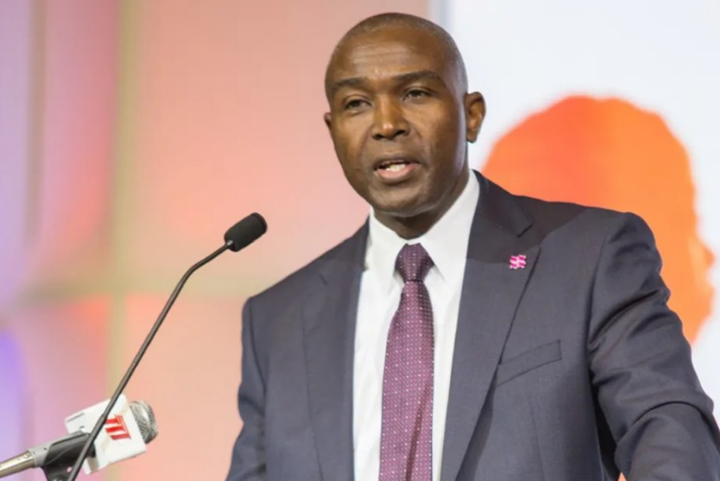InfoStride News reports that the Nigerian Liquefied Natural Gas (NLNG) Limited has officially declared that the ambitious Train 8 project will no longer be feasible due to a critical challenge: the unavailability of feed gas supply in the country.
This revelation comes as a significant setback for the NLNG, which had aspired to expand its gas processing capacity through the construction of additional infrastructure as part of Train 8.
This announcement was made during a recent visit to Bonny by the Minister for Gas, Ekperikpe Ekpo, where the NLNG Managing Director, Dr. Philip Mshelbila, shared the disheartening news. Dr. Mshelbila attributed the gas supply crisis to the persistent problem of crude oil theft, which has plagued the nation’s oil and gas operations for an extended period. Notably, this issue has escalated in recent times, causing a decline in crude oil and associated gas production.

Speaking on the matter, Dr. Mshelbila expressed, “Today, the biggest challenge we have, one that poses a threat not only to our existing operations but also to our expansion plans, is feed gas supply.” He emphasized that the existing trains, from Train 1 to Train 6, currently operate at approximately half of their potential capacity, a situation that has endured for an extended period. The crux of this challenge lies in the rampant theft of crude oil, which directly impacts the supply of associated gas to the NLNG facilities. Consequently, the NLNG plant operates at half capacity not because it lacks the technical capability but due to the absence of sufficient feed gas.
The NLNG had harbored aspirations for the Train 8 project, which, at this juncture, remain in a state of limbo. Dr. Mshelbila stated, “We have aspirations for Train 8, but we cannot progress that work because we have no line of sight as to where that gas will come from. We believe that the gas can only come from deep water gas, but the terms for that must be addressed.” Deep-water exploration, essential for sourcing the required gas, is currently encumbered by commercially unviable terms outlined in the Production Sharing Contracts (PSCs) governing this sector.
As context, InfoStride News recalls that in August 2022, Mr. Adeleye Falade, the former General Manager responsible for production at the NLNG, revealed that the company’s LNG plant production, with an annual capacity of 22 million metric tons, was running at an impressive 99.4% year-to-date availability. However, the utilization rate remained at approximately 68%. This discrepancy represented a significant loss of revenue, estimated at $7 billion, and was attributed to the shutdown of critical oil and gas pipelines due to security concerns at various facilities.
During Minister Ekpo’s visit to Bonny, Dr. Mshelbila underlined the urgent need for Nigeria to address the root causes of gas supply challenges. This concerted effort is crucial to mitigate revenue losses and harness the full potential of the country’s gas resources. Solving these multifaceted problems is vital in the context of addressing energy poverty in the nation.
In light of this pivotal development, InfoStride News has outlined several key strategies that could help alleviate the ongoing gas supply challenges:
1. **Preventing Crude Oil Theft**: Addressing the issue of theft is paramount to securing associated gas supplies. Initiatives to curb this criminal activity should be a top priority.
2. **Ensuring Non-Associated Gas Availability**: It is essential to ensure consistent access to gas directly from wellheads, thus reducing dependence on associated gas.
3. **Improving Gas Processing**: Enhancements in the gas processing sector can optimize the usage of available resources, making operations more efficient.
4. **Addressing Operational Inefficiencies**: Tackling issues that hinder smooth operations in the gas sector, such as outdated infrastructure or bottlenecks, can significantly enhance performance.
5. **Favorable Investment Policies**: Implementing policies that attract investments in the gas sector is critical for fostering growth and innovation.
6. **Upgrading Infrastructure**: Enhancing the nation’s gas-related infrastructure can lead to improved efficiency and reduced losses in the supply chain.
7. **Fair Pricing Structure**: The establishment of pricing structures that encourage suppliers and protect consumer interests is vital for a balanced and competitive gas market.
8. **Introducing Guarantee-Backed Payment Contracts**: Contracts with guaranteed payments can help resolve pricing concerns and provide greater financial stability to sector stakeholders, ultimately boosting overall growth.
It is important to note that the NLNG and its partners are actively engaged in the development of the Train 7 project, scheduled for commissioning in 2024. This project represents a significant milestone in Nigeria’s LNG industry, aiming to further enhance the nation’s capacity to process and export liquefied natural gas. It’s worth mentioning that Minister Ekpo’s visit to Bonny encompassed a comprehensive tour, which included the Central Control Room (CCR), the NLNG plant complex, and the Train 7 construction site, underlining the government’s commitment to supporting the industry’s growth despite the challenges it faces.
Support InfoStride News' Credible Journalism: Only credible journalism can guarantee a fair, accountable and transparent society, including democracy and government. It involves a lot of efforts and money. We need your support. Click here to Donate
